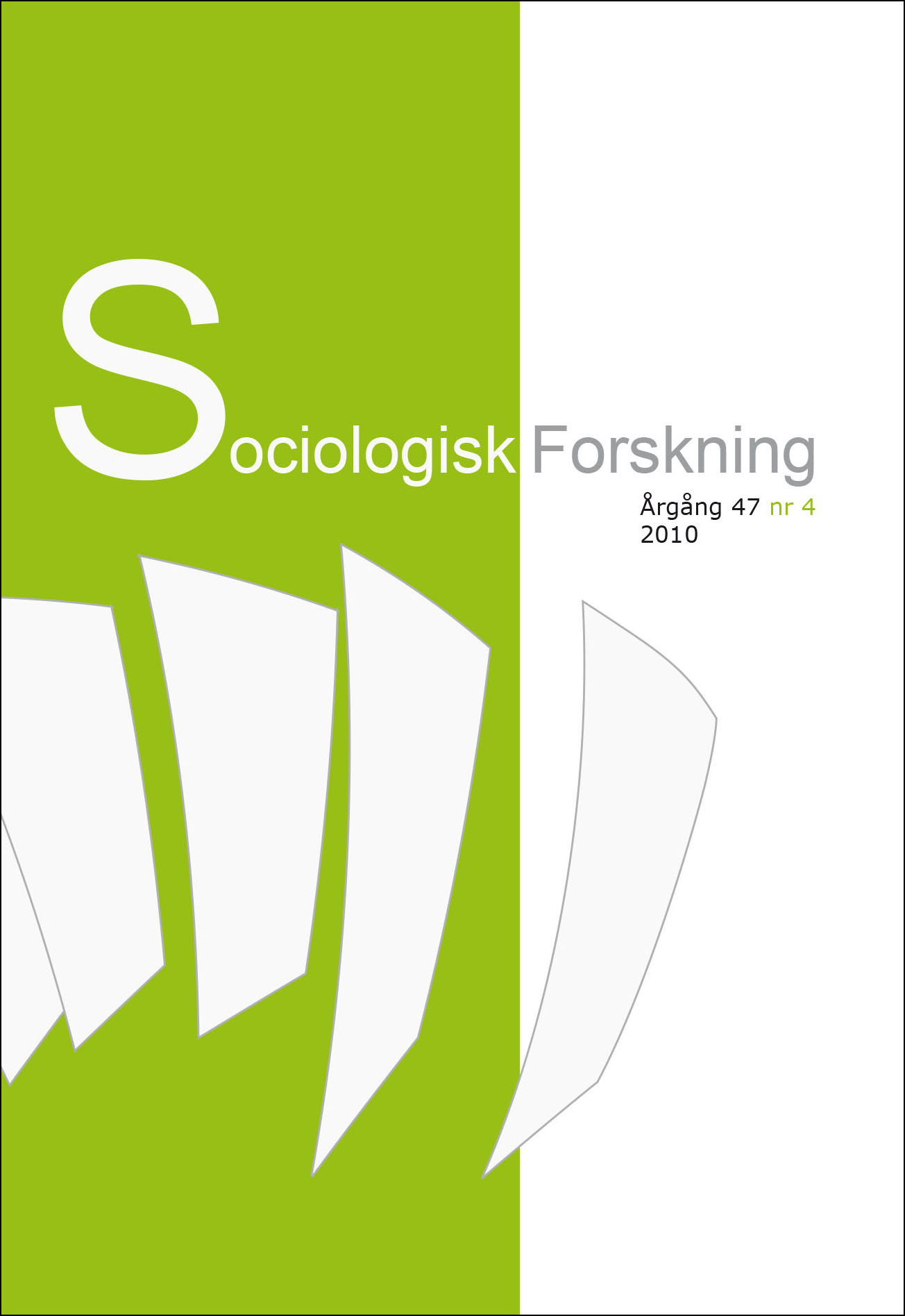After work
en longitudinell studie i arbetsmiljöns långsiktiga inverkan på sambandet mellan socioekonomisk position och äldres ohälsa
DOI:
https://doi.org/10.37062/sf.47.18470Keywords:
physical work environment, psychological work environment, socioeconomic position, health, elderlyAbstract
After Work. The long-term effects of work environment on the association between adult socioeconomic position and ill health among the elderly
The aim of this study is to analyse the long-term effects of work environment on the association between adult socioeconomic position (SEP) and six ill health outcomes among the elderly.
Data was drawn from the longitudinal Level of Living and the SWEOLD-surveys. The individuals are followed from 1968 to 1992 and from 1981 to 2002 and 2004, combining baseline information regarding SEP and work environment during the period of occupational activity with the ill health outcomes from the follow-up studies.
Strongest effects where revealed when controlling for the physical work environment on the association between both measures of SEP and two of the ill health outcomes: musculoskeleta lpain and physical performance. The psychological work environment, however, explained very small parts of the associations. The results, even controlled for SEP, exposed strong direct relations between ill health and psychological work environment and rather strong relations to physical work environment.
As socioeconomic position indicates a particular structural position within society it may determine the likelihood of health damaging exposures during the period of occupational activity. This study shows that the effect of work environment significantly affects ill health among the elderly. Hence, the results indicate the importance of taking measures in improving work environment during the labour-market participation period, especially since policy-makers attempt to convince workers to stay longer in the workforce.
Downloads
Published
How to Cite
Issue
Section
License
All content in Sociologisk Forskning is published with immediate open access, under the Creative Commons license CC BY-NC-ND 4.0.
All content may be read, downloaded, shared and printed for non-commercial purposes, free and without fees. Contents may not be altered. When content is reused, author, source and a link to the copyright licence must be provided. The author retains copyright to their content. No publication fees are charged.





